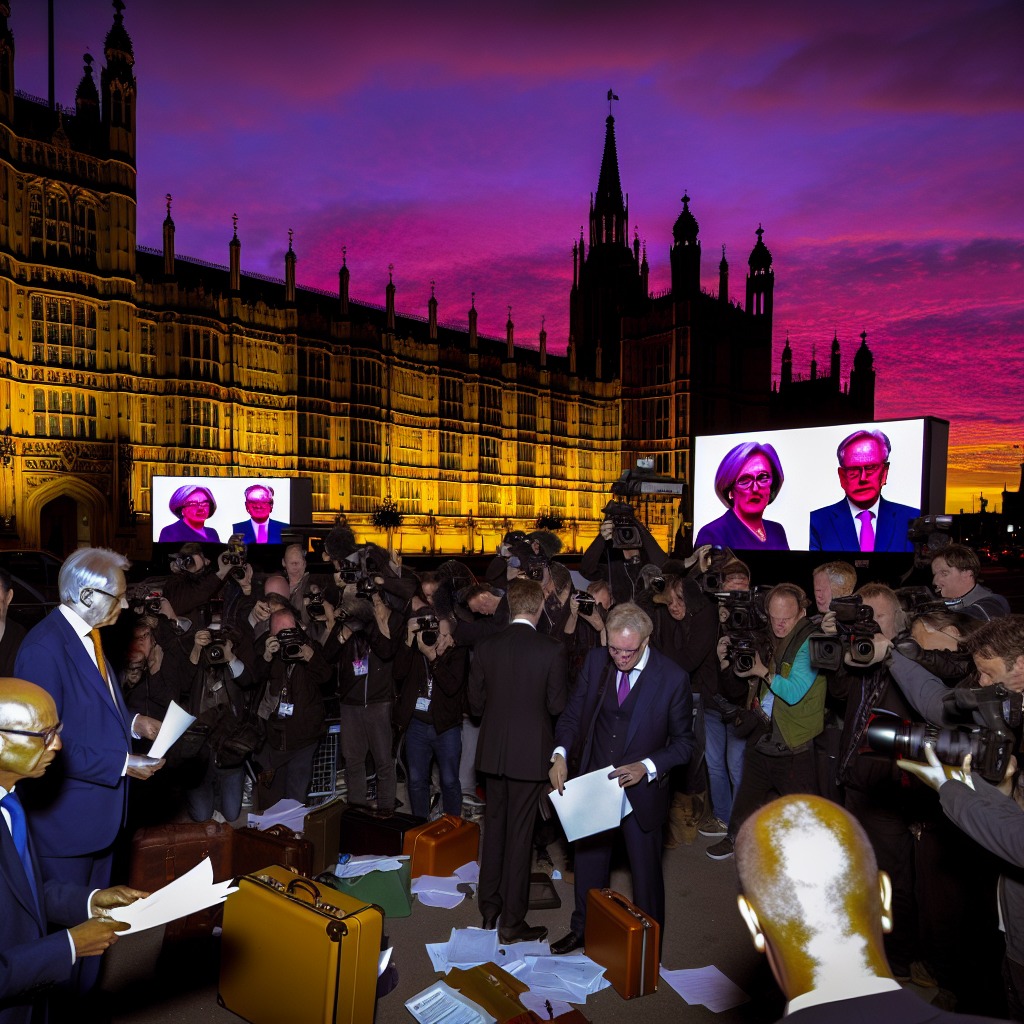Pre-Election Exodus: MP’s Resignations Shake Starmer’s Labour and Sunak’s Tories

The British political landscape is in a limbo, with the clouds over Westminster growing ever grayer by the day. As we edge closer to this year’s elections, a striking and rather unprecedented tableau unfolds: an increasing number of MPs, spanning the breadth of the political spectrum, are signalling their readiness to step away from the hurly-burly of parliamentary politics. This prevailing mood of departure, reminiscent of a modern political ‘Exodus’, heralds a moment of profound reckoning and opportunity for both the Conservative and Labour Parties. A significant number of Conservative MPs choosing not to seek re-election—a mass resignation of sorts that hints at dissatisfaction and a desire for change both within the parties and broader society.

Traditionally, when MPs choose to relinquish their roles, it’s attributed to personal motivations or perhaps disillusionment with the party leadership. However, when such decisions are made en masse, they suggest deeper undercurrents of systemic discontent that may well forecast a transformative shift in political dynamics, reflective of both internal rifts within parties and a broader societal evolution.
For the Conservative Party, which has steered the ship through the tumultuous waters of Brexit and the ongoing trials of the COVID-19 pandemic, this wave of forthcoming departures should prompt a serious introspective pause. The essential lesson here hinges on the importance of maintaining party unity and refining the art of listening as much as leading. A more inclusive and flexible leadership approach might help to soothe existing fractures, whereas a continuation of rigid, top-down leadership could risk deepening them.
Conversely, the Labour Party, under Sir Keir Starmer’s stewardship, confronts its own critical moment. It is imperative for Labour to unify its vision and articulate a clear, compelling narrative that resonates with the electorate—a narrative that not only distinguishes itself from the Conservatives but also mends internal divisions. Labour’s journey forwards must be one of clarity and purpose, aiming to position itself as a beacon of change, resilience, and responsiveness.
In an age dominated by digital communication and social media, both parties must also navigate a political landscape that is more transparent and immediate than ever before. The digital era demands authenticity and the ability to adapt swiftly to shifting public sentiments. This evolving reality places a premium on genuineness and adaptability—qualities that can help mitigate risks of further MP disengagements and public disenchantment.
Crucially, both the Conservative and Labour parties need to remember that their primary duty is to serve the public interest. A recalibration strategy, therefore, would involve a renewed commitment to elevating public service above partisan priorities or electoral manoeuvring. Embracing a politics that prioritises extensive public consultation and values constructive discourse over polarising rhetoric could rejuvenate the political process.
Moreover, amidst the current churn of resignations, one can glimpse a silver lining. The departure of long-standing MPs could pave the way for fresh faces and innovative ideas, injecting new vitality into the political arena and potentially fostering a closer connection between the corridors of power and the public.
In sum, as this unusual pre-election landscape continues to evolve, with numerous MPs stepping down, both the Conservatives and Labour are presented with a clear message. Navigating this transformative phase requires a robust re-evaluation of priorities and an agile approach to governance, essential for addressing not only the immediate tremors but also the broader challenges of leading in an increasingly complex society. This is much more than a mere electoral challenge; it is a defining moment, an opportunity to reshape British politics in ways that could ultimately enrich its democracy and better serve its citizens. The time for bold thinking and earnest engagement with the electorate is now, and it promises to set the course for the future of political leadership in the United Kingdom.





